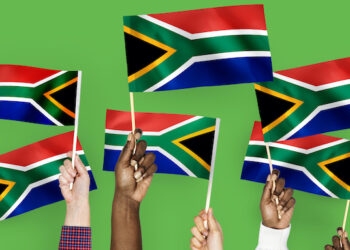It’s May 2004. The 2010 World Cup host nation is about to be announced, and the whole country is in a state of suspended animation. Then: frenzied celebrations; 2010 parties; a horde of promises; countless analyses…
We’re now 75 percent of the way there and about to host the Confederations Cup. What is sadly lacking, however, is the excitement, anticipation, awareness and buzz that should surround this warm-up to the World Cup. In other words – those intangibles that are created by marketing and advertising.
Surely by now the PR machine should have been in full force? Build-up should have started, TV programming scheduled, and the newspapers should have been speculating on the chances of the competitors.
It should have been everywhere – billboards, buses and taxis, at least.
Instead? Almost nothing, apart from the occasional piece buried in the sports pages.
Strange to imagine that the impact of an event that attracts an estimated cumulative worldwide TV audience of between 26- and 37-billion (yes, billion) is going unnoticed.
Economic benefits – sustainable longterm benefits – are really what it’s all about. And whilst Germany was a financial success (not that it impacted the economy to a great extent), Japan and Korea invested heavily, for little or no return in 2002.
On the plus side, it was estimated that 159,000 jobs would be created because of 2010, impacting over a million people directly, and that a quarter of a million people would flood in from overseas, generating many billions in spend.
Let’s hope so. There are companies that will no doubt benefit hugely.
The telecommunication giants, transport operators and hotels are set for big rewards.
However, it is debatable how much of this will filter down to the average, or less than average, man in the street. Plus, the current world financial crunch is predicted to last, which will impact directly on the World Cup and the international attendance.
What about marketing?
There hasn’t been any. One can point to the occasional article covering the event, but at the same time one finds as many predicting absolute disaster for Bafana Bafana.
No one seems to have realised yet that it’s not all about the marketing of soccer. It’s about the ability to harness the South African population en masse and to unite everyone behind one ideal, one team, one event.
But such an exercise takes time; you’re appealing to, and trying to change, the psyche of an entire nation.
All marketing tools have to be invested in – all media channels have to bemobilised. Whether this will happen, is doubtful.
Firstly, one wonders whether the vision exists to achieve such a goal. And then, whether the expertise is available to make an objective a reality.
The World Cup will certainly happen.
Jobs have been created, some industries will benefit, there will be new stadiums, and some tourists. The SABC will ensure huge coverage and worldwide exposure for the country.
Will the marketing wheels kick in, and will South Africans get behind the ideals of 2010?
Even the sponsors have shown very little activity. And by activity I mean a bit more than a competition here and there, or a logo at the bottom of a print advert.
Yes, we see infrastructure upgrades, but little hype, sell, or marketing. It will be interesting to see what effect this will have on the success – both financial and in terms of perception – of the biggest event we’ll probably see in our lifetimes.
Harry Herber is the group managing director at The MediaShop.
- This column first appeared in The Media magazine (March 2009).













